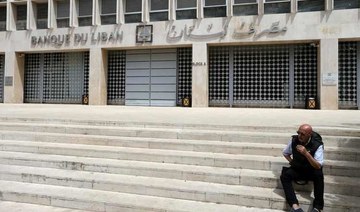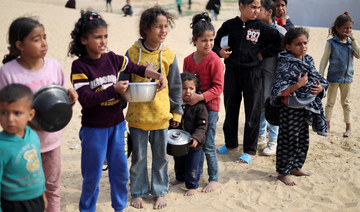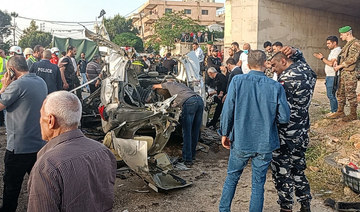BEIRUT: “The oppression has turned into a historic and exceptional popular uprising,” said Maronite Patriarch Beshara Al-Rahi, on the seventh day of protests against the imposition of taxes and corruption in Beirut.
This is the first attempt by a Christian authority to acknowledge the protests, which is notable as the insults unleashed during it are aimed at the highest Christian position in Lebanon, the president of the republic.
Al-Rahi called for the need to “embrace the protest” but warned, after an extraordinary meeting of the Council of Catholic Patriarchs and Bishops in Lebanon, that it might turn into a “coup.”
Protesters faced the rain on Wednesday, as political authorities tried to grasp what is happening on the streets.
The authorities’ pressure was not successful. It failed to reopen schools and universities on the seventh day of the protests as well as main roads, despite the recourse to the Lebanese Army’s Commandos Regiment to open a vital road in Zouk Mosbeh.
Authorities appealed to the judiciary in an attempt to point out the seriousness of the protesters’ demands to “prosecute the corrupted.”
According to the official national news agency, the Mount Lebanon State Prosecutor Judge Ghada Aoun is suing former Prime Minister Najib Miqati, his son Maher, his brother Taha and Bank Audi for the crime of “illegal enrichment” by obtaining subsidized housing loans, and referred them before the first investigating judge.
General Prosecutor Judge Ghassan Oweidat confirmed that he did not receive any document, claim or file and that there are obvious legal errors in the prosecution.
This measure did not convince the protesters of the authority’s seriousness. Thirty-four-year-old Tony, who works at a sports club that opened its doors Wednesday for the first time since protests began, told Arab News: “We cannot be convinced by what the government is saying. We already gave them a chance.”
Life in Beirut, like other regions, is moving very slowly. Shops are open but lack customers. Only restaurants and grocery shops are encountering fewer than the normal number of customers.
“People have limited cash flow. The banks are closed and in few days they have to pay their employees their salaries. How will they get paid?” Asked Dima, 32, who owns a salon in Furn El-Chebbak. “People are very frugal and restrict their purchasing to necessities. I go to protests daily. I cheer and have fun, but at the same time you can feel the pain. I applaud the security services for controlling the protests, which is reassuring to the people.”
Abu Charbel, a taxi driver, said: “My children have left Lebanon, they live in the US and France. How can they live here? Jobs are now divided among political forces and young people are crushed in their homes. The youth have all the right to protest.”
Some parliamentarians tried to join the protesters on Wednesday, some of whom were rejected, such as MP Neemat Frem, a businessman and a member of the Free Patriotic Movement, led by Gibran Bassil. Others were welcomed, including the Kataeb Party’s Sami Gemayel and Lebanese Forces’ Elias Hankash, whose parties oppose the government.
Al-Rahi said the uprising “necessitates taking historic stands and exceptional measures.”
“Analgesics are no longer working. The government and administrations must change their approach. We call on the president to immediately begin consulting with political and community leaders to take the necessary decisions regarding the people’s demands. In return, protesters must agree on a representative to negotiate, on their behalf, with the concerned authorities in order to reach effective solutions,” he added.
Activist Darine Dandashli said: “There is no leadership for the revolution. The people are guiding us. Whoever claims to be a spokesman for the revolution and representing protesters is a liar and we are against him.”


























